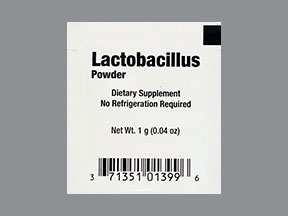
Probiotic Childrens Coupons & Savings Card – Discount Prices from $36.67
Brand for: Lactobacillus
My prescription
Edit
1, Lactobacillus (30 Packets)
Select pharmacy

Walgreens
$36.67
COUPON PRICE
Albertsons
$50.75
COUPON PRICEProbiotic Childrens savings card
Show this card to your pharmacist
Walgreens
$36.67
BIN
ID
PCN
GRP
011867
LH52DAED5C
HT
LABH001
Powered by
Price history for Probiotic Childrens (brand) & Lactobacillus (generic)
30 Packets, 1
Average retail price for Probiotic Childrens
Average retail price for Lactobacillus
Average SaveHealth price for Lactobacillus
Our price history data is based on aggregated prescription data collected from participating pharmacies in America. Our prescription data updates daily to reflect the latest price changes. If you notice a missing data point, it means there wasn't sufficient data available to generate a monetary value for that date.
Over the last 12 months, the average discount price of Probiotic Childrens is $30.02 using the SaveHealth savings card. That's an average savings of -27.10% on Probiotic Childrens with our discount card.
*Retail prices are based on pharmacy claims data, and may not be accurate when we don't have enough claims.
Lactobacillus dosage forms
Dosage Quantity Price from Per unit 1 30 Packets $54.72 $1.82 1 60 Packets $107.44 $1.79 1 90 Packets $160.17 $1.78 1 30 Packets $14.10 $0.47 1 60 Packets $26.20 $0.44 1 90 Packets $38.30 $0.43 1 30 Packets $21.02 $0.70 1 60 Packets $40.04 $0.67 1 90 Packets $59.06 $0.66
| Dosage | Quantity | Price from | Per unit |
|---|---|---|---|
| 1 | 30 Packets | $54.72 | $1.82 |
| 1 | 60 Packets | $107.44 | $1.79 |
| 1 | 90 Packets | $160.17 | $1.78 |
| 1 | 30 Packets | $14.10 | $0.47 |
| 1 | 60 Packets | $26.20 | $0.44 |
| 1 | 90 Packets | $38.30 | $0.43 |
| 1 | 30 Packets | $21.02 | $0.70 |
| 1 | 60 Packets | $40.04 | $0.67 |
| 1 | 90 Packets | $59.06 | $0.66 |
Probiotic Childrens Warnings
Probiotics are live microorganisms intended to confer health benefits when consumed. While generally considered safe for healthy children, certain groups may face increased risks. Preterm infants, for instance, have underdeveloped immune systems and may be more susceptible to infections from probiotics. The U.S. Food and Drug Administration (FDA) has reported cases of serious injuries and at least one death in premature infants linked to probiotic use. Consequently, the FDA has not approved any probiotic products for use in infants.
Children with compromised immune systems, those with central venous catheters, or those with structural heart defects may also be at higher risk when consuming probiotics. In these populations, there have been rare instances of probiotics leading to invasive infections such as sepsis.
Another concern is the potential for probiotics to transfer antibiotic resistance genes to harmful bacteria in the gut. This horizontal gene transfer could make infections harder to treat. For example, certain strains of Lactobacillus have demonstrated the ability to transfer antibiotic resistance genes.
Given these risks, it's crucial for parents and caregivers to consult healthcare professionals before introducing probiotic supplements to children, especially those in vulnerable groups. Healthcare providers can offer guidance tailored to a child's specific health needs and conditions.
Probiotic Childrens Side Effects
Probiotics are live microorganisms that can offer health benefits by supporting digestion and immune function. While generally safe for children, they can sometimes cause side effects. Common side effects include mild gastrointestinal issues such as gas, bloating, or stomach cramps. These symptoms often occur as the digestive system adjusts to the new bacteria and typically resolve within a few days. To minimize discomfort, it's advisable to start with a low dose and gradually increase it. In rare instances, children may experience allergic reactions to probiotics, presenting as skin rashes, itching, or swelling. If any signs of an allergic reaction appear, discontinue use immediately and consult a healthcare professional. Children with compromised immune systems or serious health conditions should use probiotics with caution, as there is a small risk of infections. It's essential to consult a pediatrician before introducing probiotics to children with underlying health issues. To ensure safety, always choose reputable probiotic products, check ingredient lists for potential allergens, and monitor your child's response when starting a new supplement.
Probiotic Childrens Interactions
When considering probiotics for children, it's important to be aware of potential interactions with medications and specific health conditions. Probiotics contain live microorganisms, and their effectiveness can be influenced by concurrent use of certain drugs.
Antibiotics: Administering probiotics alongside antibiotics may reduce their efficacy, as antibiotics can destroy the beneficial bacteria in probiotics. To minimize this interaction, it's advisable to take probiotics at least two hours before or after antibiotic doses.
Antifungal Medications: Probiotics containing the yeast Saccharomyces boulardii may interact with antifungal treatments, potentially diminishing the probiotic's effectiveness. It's recommended to avoid taking S. boulardii-based probiotics concurrently with oral systemic antifungal medications.
Immunosuppressants: Children undergoing treatment with immunosuppressive drugs, such as Cyclosporine, Tacrolimus, Azathioprine, or chemotherapy agents, should use probiotics cautiously. In these cases, probiotics could pose a risk of infection or pathogenic colonization.
Severely Immunocompromised or Critically Ill Children: Probiotics should be avoided in children who are severely immunocompromised or critically ill, as they may increase the risk of infections in these vulnerable populations.
Given these considerations, it's essential to consult a healthcare provider before introducing probiotics to a child's regimen, especially if they are taking other medications or have underlying health conditions.
Using the SaveHealth discount card, what is the price of Probiotic Childrens without insurance?
Using the SaveHealth discount card, the price of Probiotic Childrens without insurance is $36.67.
What is the price of Probiotic Childrens at Walgreens?
The price of Probiotic Childrens at Walgreens is $36.67. SaveHealth can help you save 81% on Probiotic Childrens at Walgreens.
